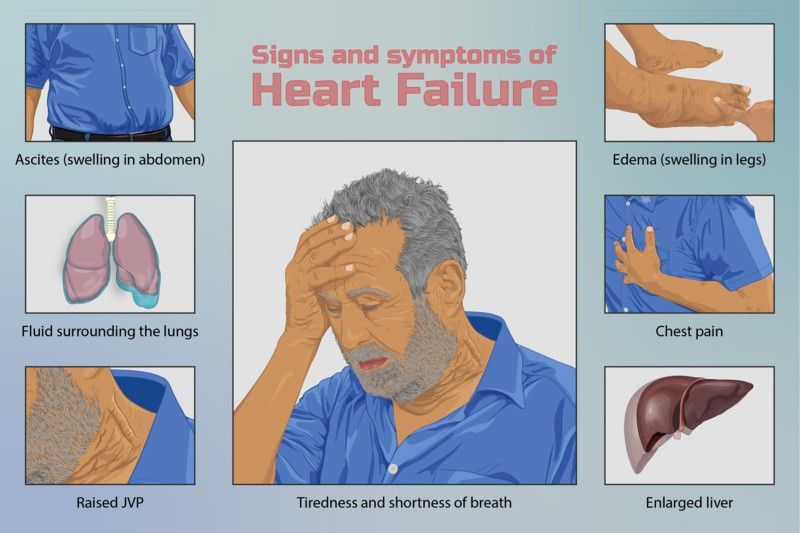How we can succeed in war vs heart failure

MANILA, Philippines — "Hugot" aside, one needs to take care of their own heart.
Heart failure is a pandemic that has been with us since ancient times, according to doctor Erlyn Demerre, Chair of the Heart Failure Program at St Luke's Medical Center Quezon City and Senior Advisor of the Advocacy Committee of the Philippine Heart Association.
In the recent webinar "Love Your Heart: Hope for the Failing Heart," Demerre and other medical practitioners discussed the risks and factors for heart failure, as well as opportunities for its prevention and treatment.
Contrary to its name, heart failure does not necessarily spell failure thanks to successful medical advances, according to experts in the recent panel discussion organized by AstraZeneca Philippines.
“The term ‘heart failure’ makes it sound like the heart is no longer working at all and there’s nothing that can be done. Actually, heart failure means that the heart isn’t pumping as well as it should be,” the American Heart Association posted on its website.
The United States-based Centers for Disease Control and Prevention (CDC) likewise agreed that heart failure is a serious condition, but it “does not mean that the heart has stopped beating.”
“Heart failure happens when the heart cannot pump enough blood and oxygen to support other organs in your body,” according to the CDC.
Professor David Sim, President of the Heart Failure Society in Singapore, said nine million people in Southeast Asia have heart failure with an overall mortality rate of 15%.
Risks factors for heart failure include certain medical conditions (including coronary artery disease, diabetes, high blood pressure, obesity, heart disease-related conditions, valvular heart disease) and unhealthy behaviors (including smoking tobacco, eating unhealthy foods, lack of physical activity, excessive alcohol intake).
Common symptoms of heart failure include shortness of breath during daily activities, difficulty breathing when lying down, weight gain with swelling of certain body parts, as well as a general feeling of tiredness or weakness.
Fortunately, there is hope for the heart, with experts saying that heart failure is treatable if caught early.
Professor Piotr Ponikowski of the Heart Failure Association of the European Society of Cardiology said, "Heart failure is becoming a preventable and treatable disease, with medication that allows patients to live longer and live better outside of the hospital.”
Early diagnosis and treatment of heart failure are said to improve the length and quality of life.
Treatment usually involves taking medicines, reducing sodium intake, drinking less liquids, use of devices that remove excess salt and water from the blood, undergoing heart transplant and other surgeries, getting daily physical activity, as well as tracking symptoms to discuss with medical professionals.
“During this COVID-19 pandemic, people with heart failure are among those at higher risk of complications. Proper disease management will help improve the condition and avoid hospitalization,” AstraZeneca Philippines Country President Lotis Ramin said.
The pharmaceutical company announced a partnership with the Philippine Heart Association to elevate the standardized care and quality improvement efforts for heart failure to promote better awareness, management and options for patients.
“Through our partnership with PHA, we aim for a comprehensive cardiovascular care program from prevention, timely diagnosis, and management of symptoms for heart failure to create a meaningful difference in the lives of Filipinos,” Ramin said.


















